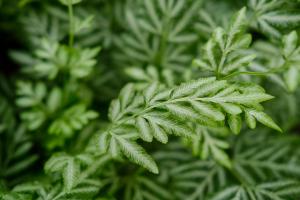Can Drinking Water be Used to Water Plants?
Watering plants is an essential task when it comes to gardening. While many people may use tap water or bottled water to water their plants, a common question that arises is whether drinking water can also be used to water plants. In this article, we will explore the benefits and drawbacks of using drinking water to water plants.
The Benefits of Using Drinking Water to Water Plants
One major advantage of using drinking water to water plants is the availability of this resource. It is often easily accessible in homes and can be used to water plants without incurring any additional costs. Drinking water is also free of contaminants, which means that it will not harm the plants in any way. Additionally, plants typically do not require large amounts of water, making drinking water an accessible and convenient way to keep them hydrated.
The Drawbacks of Using Drinking Water to Water Plants
While drinking water may seem like a great choice for watering plants due to its convenience and lack of contaminants, there are a few potential drawbacks to consider. Firstly, drinking water may lack essential nutrients that plants require to thrive. This could lead to stunted growth or a weakened plant immune system, making the plant more susceptible to disease and pests. Additionally, consistently using drinking water to water plants could lead to a buildup of minerals in the soil, which could negatively affect plant growth over time.
Alternative Watering Options for Plants
If you are looking for alternative options to using drinking water to water your plants, there are a few great choices to consider. Firstly, rainwater is an excellent option for plants as it is rich in natural nutrients and minerals that plants need. Another great option is using a homemade compost tea, which can provide additional nutrients to the soil as well as water the plant. Additionally, using filtered water or boiled tap water can help to remove any contaminants while still providing essential hydration to your plants.
The Bottom Line
While using drinking water to water plants may seem like a simple and convenient choice, it may not be the best option to ensure optimal plant growth and health. While it can be used occasionally, it is recommended to explore alternative watering options such as rainwater or homemade compost tea to better satisfy plants' needs.
Ultimately, the goal is to keep your plants happy and healthy while minimizing any negative impacts on the environment. By exploring different watering options and considering your plants' specific needs, you can find a solution that works best for you and your garden.

 how many times do yo...
how many times do yo... how many planted tre...
how many planted tre... how many pine trees ...
how many pine trees ... how many pecan trees...
how many pecan trees... how many plants comp...
how many plants comp... how many plants can ...
how many plants can ... how many plants and ...
how many plants and ... how many pepper plan...
how many pepper plan...
































